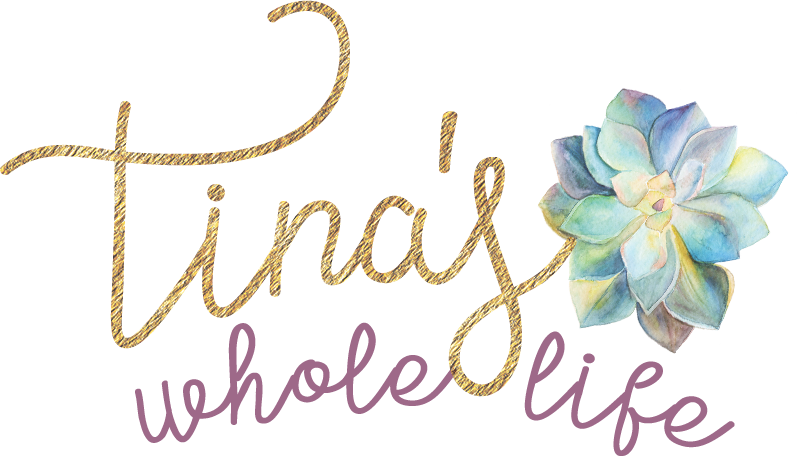Detaching from Outcomes
My struggle with anxiety and overwhelm is no secret to anyone who knows me. For years I was the girl who was desperately trying to hold it all together while moment by moment it all threatened to slip from my grasp.
In my quest to learn how to rebound from burn-out I discovered the concept of detachment and how attachment to outcomes was at the root of my battle with anxiety.
Attachment is basically a way of thinking where any given action is attached to a specific outcome. For instance, you may decide that you want to lose weight so you follow a weight loss program and in doing so you expect to lose a certain amount of weight in a certain amount of time. If you are attached to that outcome you will be extremely dissatisfied if you don’t accomplish this end result the way or in the timeframe you expected. Your thinking and subsequent actions are in direct correlation with an expected outcome. That outcome is necessary for you to feel that all is right with the world. It is the way we make sense of our lives and it is how we feel safe and confident.
The truth is that while we believe that this type of thinking makes us feel safe, it actually makes us feel more anxious. When things don’t work out as we had planned we start to wonder if our understanding of how the world works is incorrect and we feel less safe, less competent, and much more insecure. Yet if we only took a minute to step back and recognize that although we have 100% control of our own actions, we have very little control over outcomes - there are too many factors at play that can affect end results. Trying to manage outcomes is basically playing God and sets us up for failure - quite often failure on a very big scale.
Enter Detachment
Detachment is a way of thinking that allows us to still perform at our best, doing what we believe will bring us the best results, yet at the same time letting go of preferred outcomes. It is actually faith in action. While we know that our beliefs play a pivotal role in our happiness, somehow we add to it that if we believe hard enough in something we will get the results we want. That little extra piece makes our faith contingent on the end result and when it doesn't happen we can become devastated. We can lose our faith in ourselves, others and even in God when things don’t end up like we think they should. Detachment teaches that we act in faith and let the outcomes be what they are. We trust that what will be is for our best and our happiness, safety, and security don’t depend on what happens in the end. This way of thinking is incredibly freeing and since I have begun to practice it my anxiety levels, panic attacks and sleepless nights worrying have almost completely disappeared.
How to Detach
I want to be very clear that detachment is not throwing all caution to the wind, thinking that nothing we do matters and living recklessly. The only thing different from what you know to be true is that the outcome is not your responsibility or under your control. You still want to deliver your best work. You still want to believe for things that are good or that stretch your faith, all those things still apply, the only difference is that the outcome is not an end result of something you did or didn’t do and it has no MEANING. Yes, there are always learning lessons but that doesn’t mean if you did something different the end result would have been different - it may have and may possibly be worth trying - but it’s not a definite because you aren’t in control of that. See how this works?
Let’s look at some examples:
You are trying for a new job. You put your best foot forward in every way, you do all the things that you are supposed to do - in essence you do your very best to be chosen for the job. You even put your faith into getting that job. You believe you are the best candidate, you believe that God has you covered and you even pray for favor. You spend time visualizing yourself in that position and see yourself there, getting the offer and accepting the job on your terms. But in the end, they chose someone else. This is where disappointment, discouragement and fear enter and we start scrambling to find MEANING.
How did this happen?
What did I do wrong that I could have done better?
Maybe God doesn’t really have my back?
Maybe I should have prayed harder or trusted more?
Maybe I should have bought a better suit?
Maybe I should have answered that one question differently?
Maybe I shouldn’t have called to check in during the wait?
On and on and on …
Now I’m not saying that in learning and growing we shouldn’t ask ourselves any of the questions above because they are all good things to consider and grow in. But when we are attached we believe that IF we would have taken different action we WOULD have [ most definitely, beyond any shadow of a doubt, without fail ] achieved our desired outcome - and that my friends is FALSE.
We honestly have no control over outcomes and they don’t MEAN anything. The choice to pick a different candidate had less to do with us than with the people choosing. Beating ourselves up over not being chosen does us no good. Doubting God or ourselves does us no good. What we can do is review and reflect and then give ourselves kudos on the ways that we excelled in our performance, learn lessons where we can grow, and shut down any thoughts, doubts and fears that try to creep in that do nothing but hold us back.
When we learn to put our best foot forward DESPITE the outcome we experience life at a whole new level. We get to live in our best state of performance without any of the junk of expectations, disappointments and second guessing ourselves. We are freed up to try new things, experiment with life and our gifts and talents and just see what shakes out. It’s wonderful, freeing and even exciting!
Give it a Try
As I wrapped up this post and scheduled it I happened to have a chance to put this concept into action again. Yesterday presented some large challenges that had me extremely worried about the future of one of my kids. As parents we often work very hard to help our kids choose the best path, but ultimately it isn't our choice to make. When our kids choose the hard road and warning signs are flashing for us as parents it's very hard not to jump in and grab the wheel to set the course right again. The situation I faced yesterday removed the option of me stepping in at all and I felt all control slipping from my fingers. I was exhausted, overwhelmed and I could feel depression taking hold. Fortunately for me this post was still fresh in my mind and I was reminded that I don't have control over the outcome here. Instead of making me feel afraid, the realization that I don't have control actually frees me from the fear I was feeling. I know from my own experience that choosing the difficult path in life isn't always a bad thing. Often time it develops character that needs strengthening, and teaches valuable lessons that we wouldn't learn otherwise. I know from looking back at my own life that I survived many, many, wrong choices. Not only did I survive but I thrived. This perspective and understanding that I have no control over my childs future allow me to let go of the management of outcomes and instead be a better support through the learning process that is sure to come. It also frees me up from wringing my hands with worry and scrambling to set in motion plans that are sure to disappoint and further exhaust me. The minute I let go of trying to control this situation I felt an enormous weight lift and the black cloud of worry disappeared.
I sincerely hope this post helps to open your eyes to the concept of detachment and helps free you from unnecessary worry and angst as it has for me. I'd love to hear your thoughts on this concept and if you have used it to manage anxiety and overwhelm in your own life. Please feel free to share in the comments.

